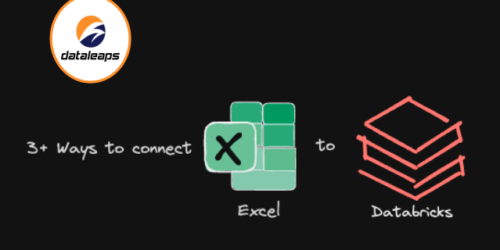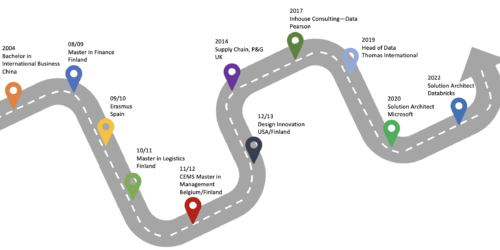Why is thinking the most important skill in the era of AI
When participating in Advancing Analytics‘ Advancing Innovation Day, I said during a panel discussion:
“Thinking is the most important skill to have in this era of AI explosion. Picking the right problem to solve and the right question to ask is the most important skill.”
A few people came to me/DMed me to discuss this point. So I thought I would write down my reasoning.
1. Pick the Right Problem to Solve
There are a lot of problems in the world, not all of them are worth solving. In the recorded human history of 5500 years, people who left a name for themselves are the ones who solved worthy problems. Your time is limited because everyone is racing against time in this wave explosion of technology. The opportunity cost of choosing to spend your time doing something, is not doing something else. You only have one life to live, if you can solve one problem in this lifetime, what would it be? Have your answer? Great, get to it, solve it before someone else does.
2. Ask the Right Questions
If you have done the 1st point, congratulations! You have asked at least one right question, which is the WHAT. Then there is the WHY? HOW? WHEN?
WHY is important because if you cannot justify it, how are you going to get budget/resource to do anything?
HOW is necessary to translate vision into a plan. Without a plan, vision is nothing but a dream. It’s also my favourite question during tech interviews. It’s a great question to differentiate people who knows what they are talking about vs. buzz word composers.
I won’t be a cliche and say answer to WHEN is always now. Timing is an art and a science. Just remember, your time is limited. Don’t wait until never.
3. Think Bigger^
Think bigger and look further, don’t pigeonhole yourself into your current situation. Humans have a tendency to project the future based on past experience. This is a disastrous thing to do in the age of AI. Ray Kurtzweil’s law of accelerating returns tells us that the rate of change in technological progress is not linear, it is instead, exponential. This couldn’t be truer in this point in history. While I am terrified and trilled to someday experience a century worth of human progress in a year or a month, it is certainly exciting to see that in the field of medicine or space engineering. So think exponentially bigger, as AI is giving you and everyone else a huge boost, the direct you are going, more than any point in history, is going to determine where you will end up.
4. Think on Your Own
Don’t drink the Kool-Aid. Don’t believe the jazz hands. Think on your own, have your own criteria to assess the situation instead of believing the marketing message or a blog someone has written (including this one). The 2nd point is a good one to apply here. Ask some questions (WHAT, WHY, HOW, WHEN) to yourself as well as to someone who is trying to sell you something. WHAT is it you have built? WHY have you built it? HOW is it going to help me? WHEN is this available?
The purpose of asking WHAT is to understand the essence of the product beyond the bling bling. If you are trying to sell me scalability, and your product is hosted on a VM in the cloud, I am not buying it. If you are selling me a E2E Data Science Platform, and there is no tracking/monitoring/lifecycle management, I am not buying it. If you are trying to sell me tight integration between your product and my existing platform, and that integration means making rest API calls over public internet, I am not buying it.
WHY is a great question to ask product group. Did they build the feature because it is cool, or did they build it because it would address an actual need/problem.
HOW does it work? HOW would it work in this and that situation? HOW does it help me? HOW does it address my future needs? You don’t get to technical depth unless you ask enough HOW questions.
WHEN is the show-me-your-hand (not the jazz hands) question. It all sounds great/looks amazing on the pretty slides, WHEN is it available? Remember time is of essence, I need to move now, not 12 months from now.
Come up with your own questions, think on your own.
5. Consistency is the Key
By consistency, I don’t mean consistently thinking, that is my next point.
Doesn’t matter if you are building an AI platform or building a career in AI, consistency in your thinking is key. That means having consistent criteria and a consistent goal when you are assessing the next move for your platform or your career. Don’t chase every shiny coin. How do you do this? You look at where you want to go and work backwards, reverse engineer your steps and make sure every step you are about to take is serving a purpose of getting closer to your goal. Whatever you do, do not change your goal every 5 seconds.
A dear friend of mine currently works at one of the big companies in the world. When we graduated, her dream was to break the glass ceiling and be an example of female minority in a leadership position. She is still an IC today. There is nothing wrong with being an IC (I am an IC), and leadership is more of an action than it is a position, but where she ended up is not where she wanted to be, because her criteria kept changing and she never kept her focus on her goal. Here’s what happened: a headhunter came and offered her a lot more money for doing the same job for a different company, she took the job for the money. Another headhunter came and offered a job in a tropical country with a low tax rate in a different industry, she took the job and moved to a different country having to learn a new industry for the tax rate and travel. That country she moved to had crazy work life balance, to change that, she had to take a pay cut and a lower position to move back to Europe. Same thing happened over again, and she kept moving, every time with a different reason. Years later, her career looks like the picture on the left. Every now and then, she asks me: “how come I am not a director/VP yet?” my answer: “Because you never worked towards it”.

6. Pivot when Needed
The world is crazy. Every day I wake up and read the news and it excites me and terrifies me at the same time. In times like this, there is a need for constant reflection and thinking. Am I going the right direction? Do I need to course correct? This is not to contradict the previous point, while your goal should be stable, your travel path should be course corrected when needed. After all, step forward in the wrong direction is two steps backwards in the right.
Sometimes I speak to organizations that just made X million investment into certain technology and realized that technology might not be future proof. Instead of cutting their losses, some people would decide to stick with it “because they already invested too much into it”. This is like staying in a bad relationship because you already put too many years into it, the sunk cost is too high and you put more sunk cost into it.
Thinking is about being logical, doing the right thing, at the right time. It is not about looking back and crying over what you have put in, as we already said in point no.3, history does not predict the future.
7. Fuel Your Thinking
You can only think when you have something to think about, just like you cannot pour from an empty glass. Read some books, listen to some really smart people discuss the latest topic on podcasts, OBSERVE, you cannot pick a problem to solve when you don’t see a problem.






